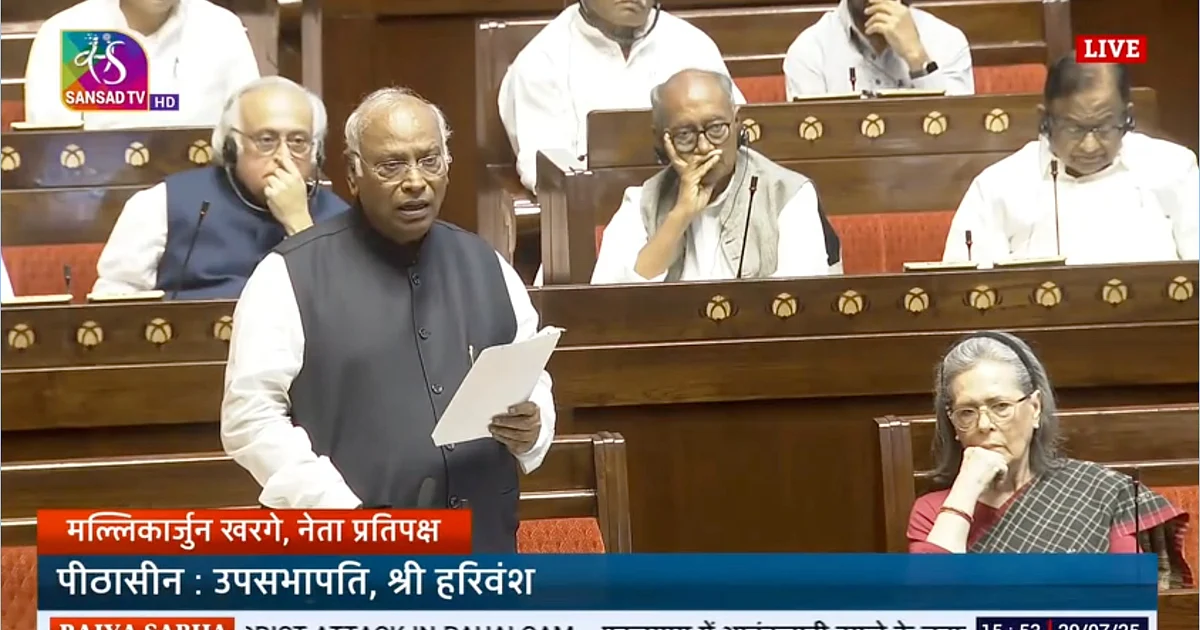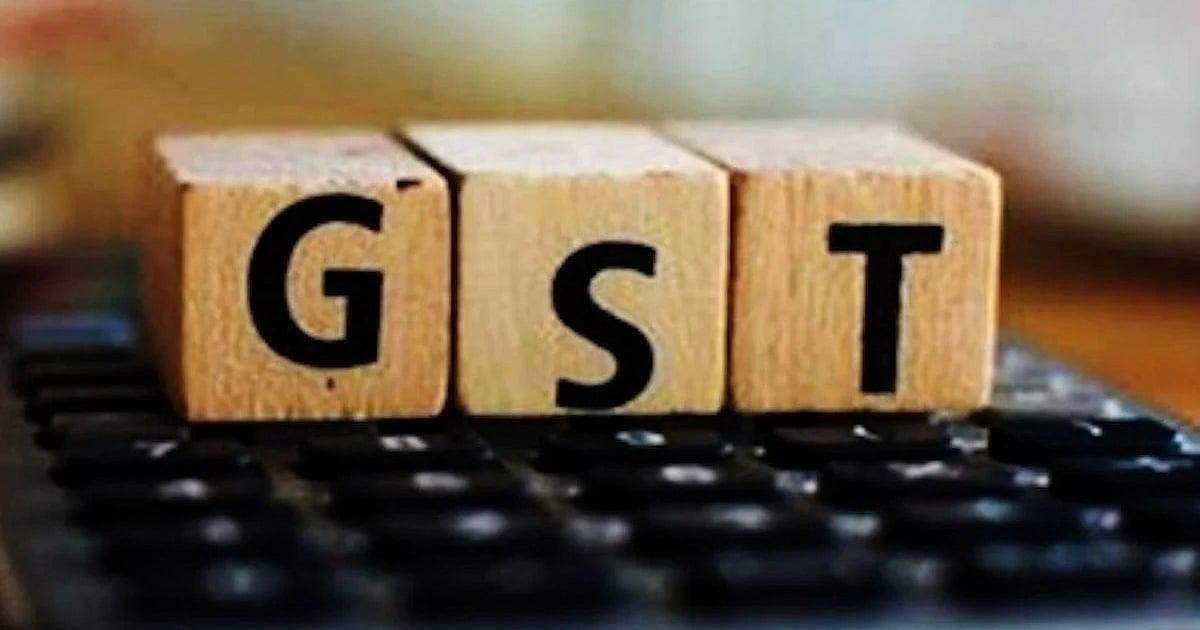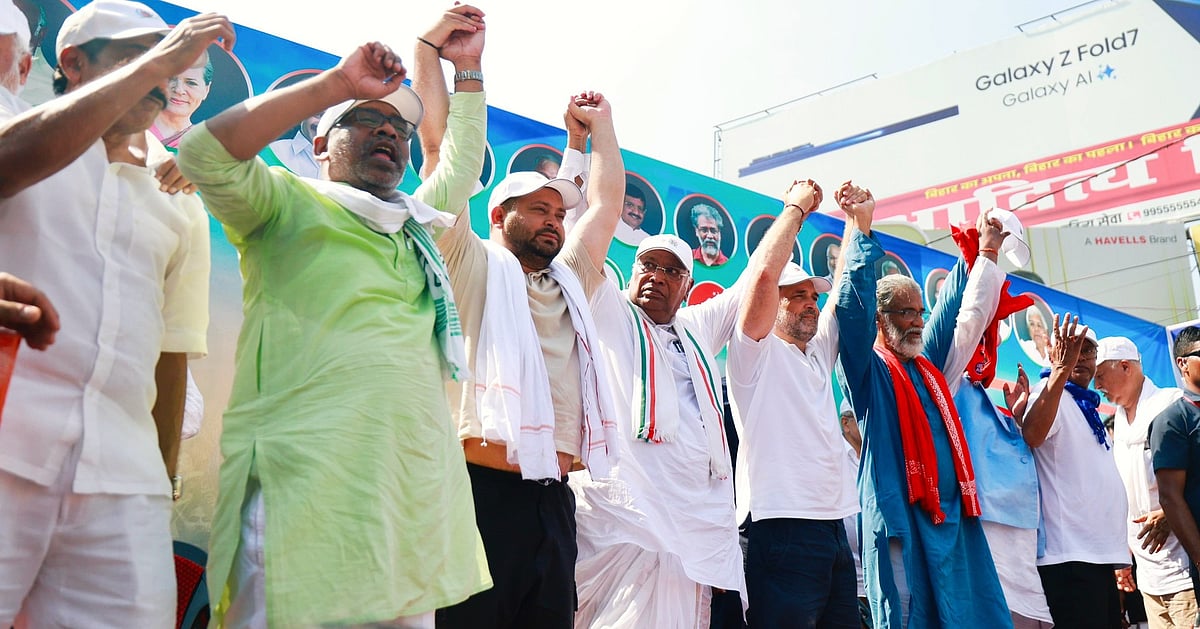National News
Pahgam terrorists were killed during Operation Sindoor debate in Parliament: coincidence?

It is also, this is another small case, which is ‘officially’, Operation Sindoor has not ended; This continues – this is why it is not appropriate to give more information about it. Therefore, even though it stops further questions, does it also explain what India may have achieved in this way? Certainly a ceasefire would have agreed when we received some signs, if interim, purpose? (Certainly, it was not an American business that was safe, otherwise the government would have said so – there is no part of operation vermilion with business deals, of course?)
Or, in fact, if privacy is an essential, why does it agree to a discussion?
We can probably avoid mentioning here on 30th July, the 26th anniversary of the end of the Kargil war. After the end of the final Indo-Pak war in 1999, the then-Vajpayee government to review the operation. A four -member committee was constituted under the chairmanship of Subrahmanyam. The committee submitted its report to the government, which was discussed in Parliament. (That K. K. Subrahmanyam’s son is current Foreign Minister, S. Jaishankar, is coincidentally.)
This is a final question, then: Has the government formed any such committee on Operation Sindoor (or is there a plan to create)? If yes, then who is in it, and when is it likely to receive the report?
Yes, this is actually a tiring list of questions, although lower than the whole.
Now, undoubtedly, the reasons for national security – or the fact that the operation vermilion is still not officially declared – which prevents the answers from being made public. Why, finally, the Treasury Bench Gandhi Vadra can give a thin presence proof to the appearance just before speaking?
National News
Why Consensus Center depends on compensation states

As the GST Council calls for a two -day meeting tomorrow, the fastest point of the dispute will not be the Prime Minister’s Diwali deadline for the “next generation” reforms, but the question of how the states will be compensated for the proposed comprehensive changes.
Improvements may be promised to simplify the tax structure and low rates on essential commodities and services, but state governments are afraid that they will have to struggle with lack of adequate revenue.
At the center of the case, Prime Minister Narendra Modi’s commitment to start a new GST regime by 2025. The proposed overhaul includes compressing the current four-level structure in two major slabs of 5 percent and 18 percent while maintaining exemption on essential food, medicines and education.
In addition, a high 40 percent rate is to be planted on sin and luxury goods, which covers items such as alcohol, tobacco and cigarettes. While the Center frames the move as a “Diwali gift” to reduce prices to consumers and MSMEs and simplify compliance, states have argued that the actual cost will be borne by them.
Many items are expected to shift up to 12 percent from slabs to 5 percent and 28 percent from slab to 18 percent, state governments will come for sharp contractions in tax receipts.
Opposition ruled states, including Kerala, Karnataka, Tamil Nadu, West Bengal, Punjab, Jharkhand, Telangana and Himachal Pradesh, have warned that the proposed rationalization can strip between Rs 85,000 crore and Rs 2 lakh crore annually from their treasures.
These estimates are for 15-20 percent erosion of their GST revenue base. Telangana alone suffers a loss of Rs 7,000 crore.
The compensation end of compensation cess in March 2026 has intensified the demands for an alternative mechanism. Using 2024–25 as the state base year, the minimum five-year-old compensation are pressurizing for guarantee, and the protection of at least 14 percent revenue increase per year that reflects the conditions in the first five years of GST.
Without such security, finance ministers have warned that important welfare schemes, infrastructure projects and development expenses will be compromised.
National News
SC Udaipur declines to cancel the bail of co-accused in the murder case of tailor

The Supreme Court rejected the appeal by the son of National Investigation Agency (NIA) and Udaipur tailor Kanhaiya Lal on Tuesday, September 2,, demanding the bail given to one of the accused in the 2022 murder case.
A bench, including Justices MM Sundaresh and Satish Chandra Sharma, refused to intervene in the earlier decision of the Rajasthan High Court, granted bail to Mohammad Javed, who was one of the many people involved in the murder.
The apex court was hearing an appeal filed against an order passed by Nia and Yash Teli, Lal’s son, Rajasthan High Court to bail Javed.
Looking for Teli, the lawyer argued that Javed played an important role in the conspiracy, alleging that he had closed the main attackers about Lal’s location and movements.
The petition stated: “The murder was done in a communally surcharge atmosphere across the country.” This further alleged: “The chief accused had gathered himself, prepared to kill, collected weapons, resumed and imposed Javed to inform about the deceased’s hideout.”
Describing the sequence of murder, it claimed: “On a terrible date, he entered the tailor shop, disguised as customers and while the deceased was taking his size, the accused put a camera, shouted a communal slogan, attacked and killed the deceased.”
The NIA, while supporting the petition, said that Javed worked in a neighbor’s shop and provided information about red hideout on the day of crime.
Despite these presentations, the apex court opted not to interfere with the bail given by the High Court.
National News
Claiming a ‘hydrogen bomb’ and other takeaways from a remarkable journey

Gandhi reiterated the allegations of “rigging of industrial-mamane” in the 2019 Maharashtra assembly elections, accusing the Election Commission (ECI) of India to help the BJP to help in elections later.
Political observers in Patna believe that the Congress campaign has ignored the BJP. However, BJP leader and Patna Sahib MP Ravi Shankar Prasad dismissed Gandhi’s remarks as “irresponsible”, saying, “Whenever I listen to Rahul Gandhi, inside or out of Parliament, takes time to understand what he is trying to say.
Gandhi’s Pinpoint allegations and a large -scale mob in their voter Adikar Yatra meetings in front of the mob, however, such a thing looks rapidly irrelevant and clear. In the post-7 August press conference, not a single point-by-point rebellion of his allegations has come from either BJP or ECI.
The ECI has only denied Gandhi’s allegations. On August 14, it called Mahadevpura to Gandhi’s claims about “false and misleading”. Earlier in February, the ECI described it as “efforts to disappoint parties” as “completely absurd” by the ECI “disappointed with the poll results”.
Widely criticized and at the press conference, Chief Election Commissioner Gyanesh Kumar dramatically announced that Gandhi either would have to prove his allegations or apologize to the nation “. Since then a fortnight has passed. Kumar is still waiting for the evidence that Gandhi has already presented.
-

 IPL3 months ago
IPL3 months ago‘Any nahhi numba hai’: Furious MS Dhoni loses cool, CSK shouts at players – Watch. Cricket news
-

 Sports3 months ago
Sports3 months ago‘Is MS Dhoni fit or not?’ Cricket news
-

 IPL3 months ago
IPL3 months agoExplained: Why Punjab Kings will get two opportunities to reach IPL 2025 final
-

 IPL3 months ago
IPL3 months agoAnil Kumbal on Shubman Gill: ‘Captaining India is different from the captaincy of a franchise’. Cricket news
-

 IPL3 months ago
IPL3 months agoIPL 2025: Hardik Pandya hit the unique ‘Triple Century’ in T20S.
-

 IPL3 months ago
IPL3 months ago‘No, you can’t take it …’: Shreyas Iyer’s bold statement. Cricket news
-

 National News3 months ago
National News3 months agoIndian Youth Congress started fellowship program for young lawyers
-

 Sports3 months ago
Sports3 months agoHow Rohit Sharma’s bad form with BAT is damaging Mumbai Indians’ IPL 2025 campaign
